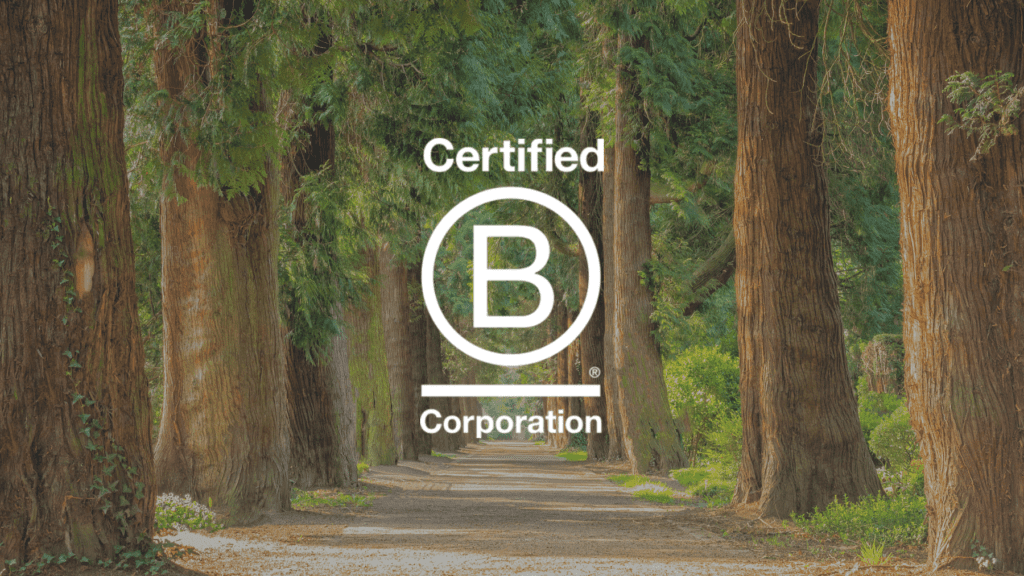If you’re interested in social and environmental responsibility, sustainable business practices, and supporting a community of like-minded businesses, then you may be wondering about the difference between benefit corporations and B-corps.
Both types of entities are for-profit companies that seek to create positive social and/or environmental impact, but there are some important distinctions between the two.
Your company can be both a benefit corporation(depending on the state) and be B-Corp certified at the same time.
Keep reading to learn more about benefit corporations and B-corps, and decide which one(or if both) are right for your business.
On the Disruptors for GOOD podcast we interview founders and CEOs of B-corps to discover the mission and vision of the movement. Subscribe here.
What is a Benefit Corporation?

A benefit corporation is a legal status granted to for-profit companies that want to consider social and environmental impacts in addition to profit when making decisions.
Unlike traditional C-Corp or S-Corp status, benefit corporations are required by law to create a material positive impact on society and the environment.
This includes investing in employees, communities, and the environment; pursuing equitable treatment of all stakeholders; and transparency about social and environmental performance.
Reporting Requirements for Benefit Corporations.
In order to maintain their status, benefit corporations must annually publish a Benefit Report that assesses their social and environmental performance against recognized third-party standards.
The report must be made available to the public on the company’s website. shareholders, and investors.
Currently, there are more than 40 states that have proposed or passed legislation acknowledging benefit corporations.
What is a B-Corp?

A B-Corp is a for-profit corporation that has been certified by the non-profit B Lab to meet certain social and environmental standards. In other words, it’s a business that not only seeks to make a profit, but also to do good in the world.
There are currently over 5,000 certified B-Corps around the globe.
The certification process is rigorous, and companies must re-certify every three years to maintain their status.
In order to become certified, companies must meet rigorous standards in five key areas: governance, workers, community relations, environment protection, and customer service & protections.
Companies must also provide evidence that their business operations are having a positive impact on society and the environment.
Some of the most well-known B-Corps include Patagonia, Nisolo, Etsy, Ben & Jerry’s, and Warby Parker.
Differences Between Benefit Corporations and B-Corps
Benefit corporations and B-corps share many similarities, but there are also some key differences between the two designations. Here are a few of the most notable ones:
Accountability
Benefit corporations are accountable to their shareholders, while B-corps are accountable to a wider group of stakeholders that includes employees, customers, suppliers, and the community.
Reporting
Benefit corporations are required to report on their social and environmental impact annually, while B-corps must publicly disclose their environmental and social performance using third-party standards on an annual basis.
Designation
Benefit corporation is an actual legal status granted by individual states, while B-Corp certification is granted by a nonprofit organization called B Lab.
States
As of 2021, more than 40 states that have proposed or passed legislation acknowledging benefit corporations, while there is no such legislation at the state level for B-corps.
Conclusion:
So, which one is right for your business? If you’re interested in incorporating as a benefit corporation or becoming certified as a B-Corp, the best thing to do is consult with an attorney or other professional who can help you navigate the process and make sure you’re meeting all the requirements.
Whether you choose to become a benefit corporation or a B-Corp (or both!), you’ll be joining a community of businesses that are committed to making a positive impact on the world.







